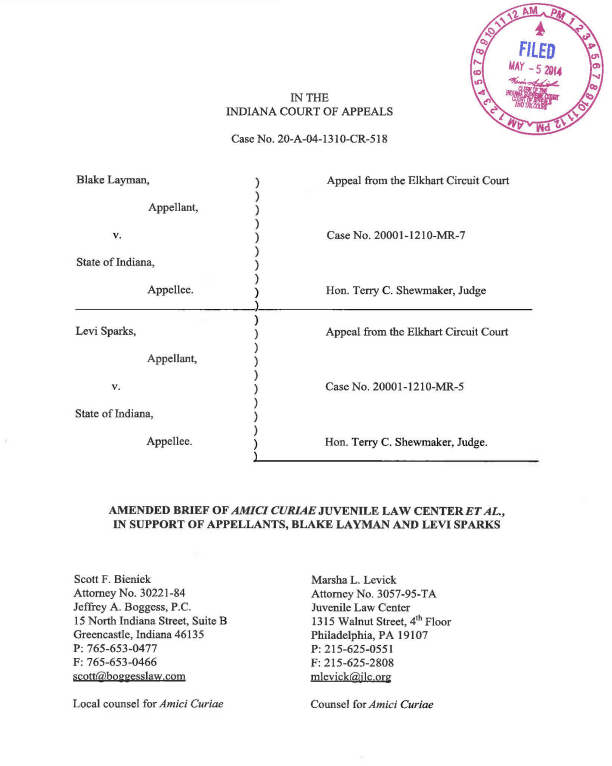
Summary of Argument
On October 3, 2012, 16-year-old Appellant Blake Layman, 17-year-old Appellant Levi Sparks, 21-year-old Danzele Johnson, and two other teens decided to break into a house in Elkhart, Indiana. The five were not armed and thought the house was vacant. Tragically, not only was the home occupied, but the homeowner shot and killed Mr. Johnson. Though not the shooter, Appellants were convicted of murder under Indiana's felony murder statute. Ind. Code. §135-42-1-1(2). Appellant Layman, who suffered a gunshot wound himself, was sentenced to 55 years in prison, and Appellant Sparks, who never even entered the home, received a 50-year sentence.
The trial court's broad application of Indiana's felony murder statute to juvenile offenders conflicts with U.S. Supreme Court precedent, as well as established research on adolescent development and brain science. Compared with adults, children and teenagers are less able to perceive and assess risks. They are less capable decision-makers than adults as they are more impulsive, less risk-averse, and have difficulty assessing the consequences of their actions, often prioritizing short-term rewards over any potential long-term negative consequences.
This Court should bar the application of Indiana's felony murder statue to juveniles in light of the prevailing and uncontroverted scientific research about adolescent offending. In the alternative, the court should adopt a presumption against imposing Indiana's felony murder statute on juvenile offenders who do not kill the victim, intend to kill the victim, or actually foresee that the victim might be killed in the course of the felony. At a minimum, Indiana should adopt an "agency" approach for juvenile offenders and hold that the felony murder doctrine does not apply if the person who causes the death is not the juvenile or one of his accomplices. Finally, if convicted of felony murder, juvenile offenders' sentences must be based on their own actions and culpability rather than consequences of their actions that they, as adolescents with poor risk-assessment skills, are unlikely to foresee.